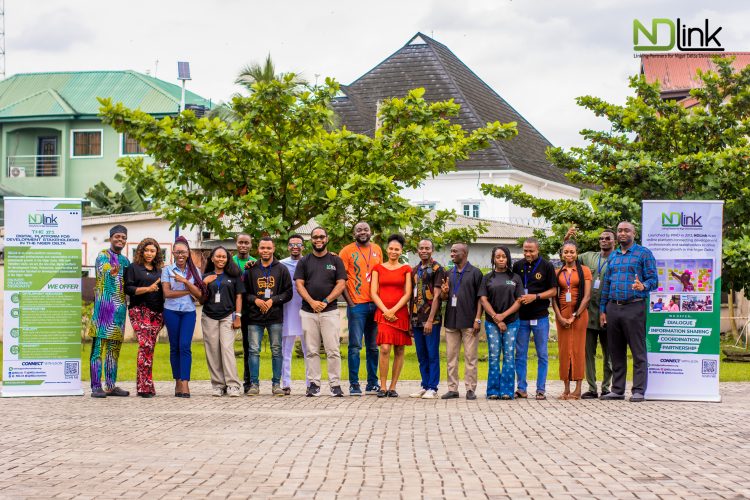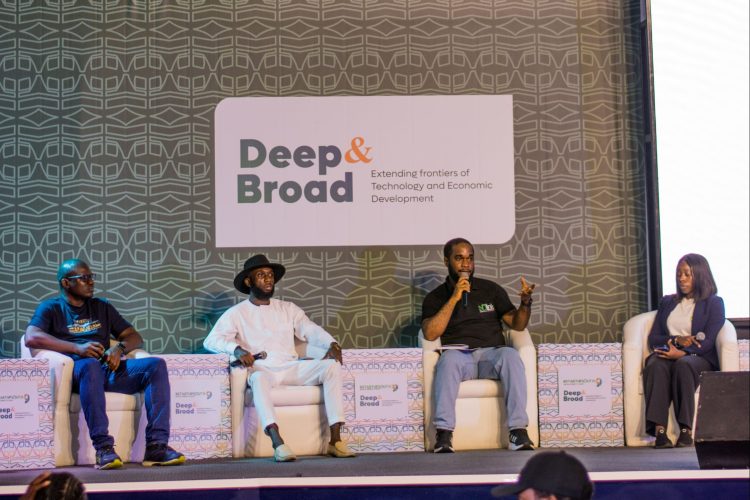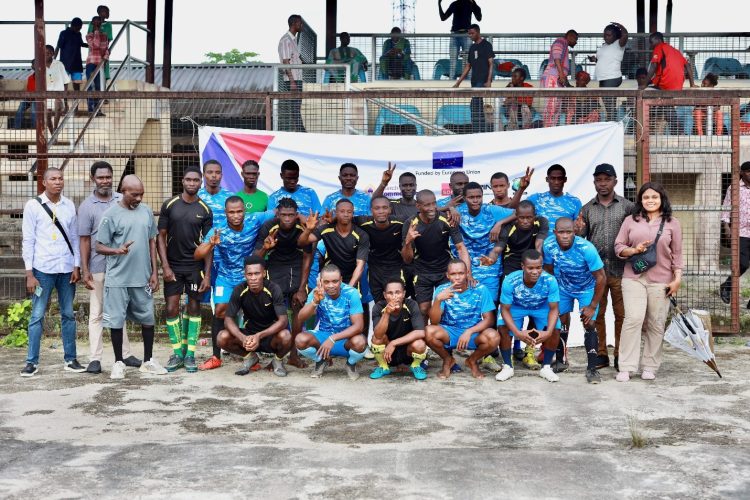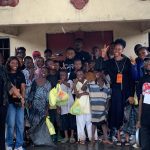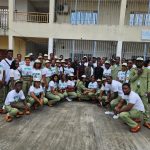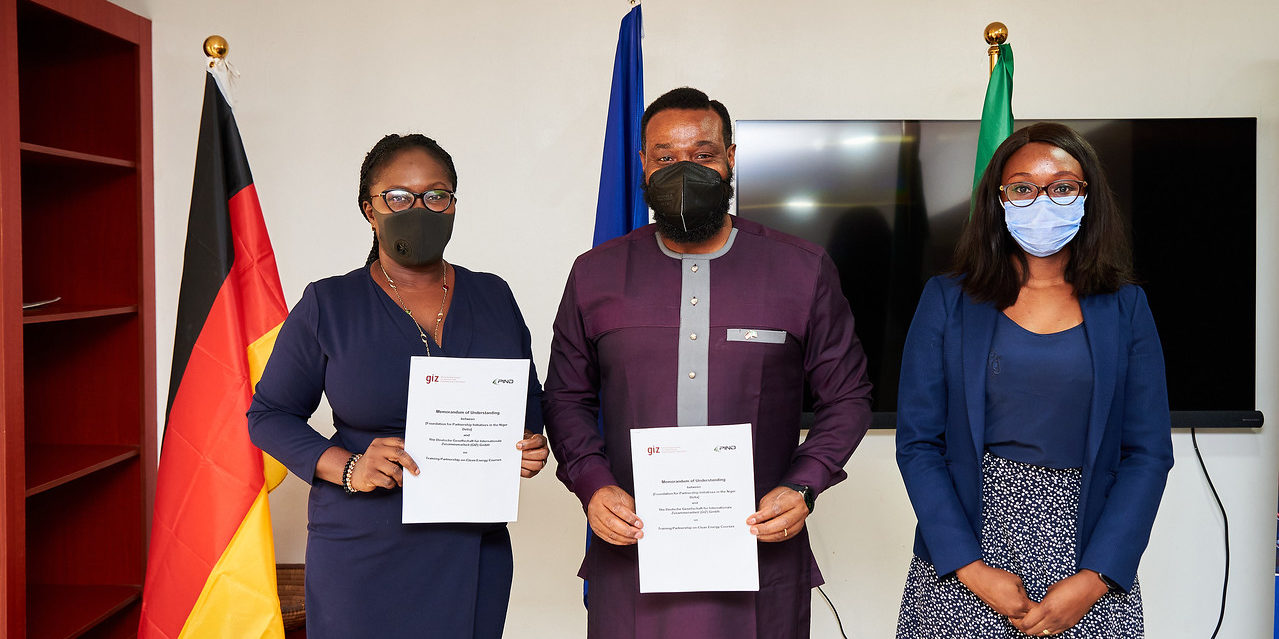
Building Capacity for Clean Energy: PIND and GIZ Partner to Improve Access to Renewable Energy and Energy Efficiency in Nigeria
March 26, 2021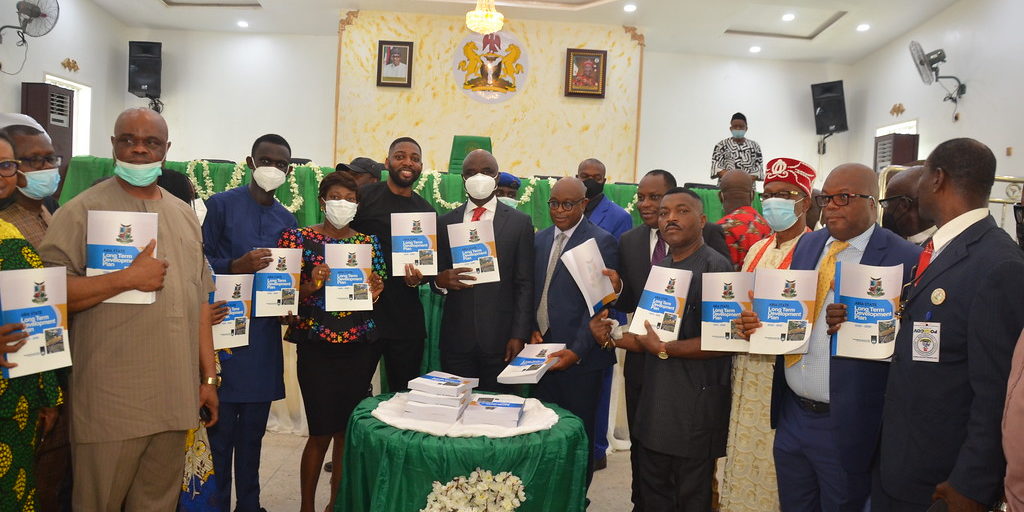
Launching a 30-Year Growth and Development Plan: The Abia State 30-Year Long Term Plan (2020-2050)
April 13, 2021
By Bariton Lezabbey
The Bodo cleanup/remediation project, overseen by the Bodo Mediation Initiative (BMI) has been on-going since 2017. The project aims to mitigate the devastating impact of two 2008 oil spills from the Shell Petroleum Development Company of Nigeria (SPDC) Trans-Niger Pipeline and restore the affected environment. No doubt, the fortunes of fisher folks who patronize the Bodo creek for livelihood support were adversely affected by the oil spill incidence. In January 2021, BMI went out to encounter active fisher folks within the Bodo creek and seek their views and experience during the period.
Over twelve local fisher men and women who were found within the Bodo estuary were engaged and asked their opinion on the ongoing cleanup in Bodo. Some of their responses, backed with evidence of their catch, showed an indication of hope. The countenance and feedback of the fisher folks indicates a gradual return to normalcy in areas affected by multiple oil-spills ranging from both the 2008 twin spills and innumerable smaller spills from the illegal activities of oil thieves. The various category of fisher folks interviewed included, the throw-net fishers, drag net fishers, as well as periwinkle pickers.
Most of the fishers acknowledged that there has been steady but slow improvement in their catch over the past one year since February 2020 to date, however, it is nowhere close to what was obtainable before the devastation of the oil spills.
Some of the fisher folks who spoke to us in local dialect gave consent for their names to be noted, while others requested anonymity.
Mr. Pius Zegenen was cautiously optimistic in his comments : “I personally have a positive feeling about the cleanup project, especially the pace of work I have seen in this current phase, and the level of community participation in terms of community workers on site. My only fear is, Shell has never been sincere; I only hope this project will not be done in the Nigerian way. As you can see (pointing to his catch), this is what I have been able to get for over 8 hours of toiling within these creeks. I am a net-fencing (kpeň-dõr) fisherman, and that’s what brought me here, but after these hours without a significant catch, I had to go picking periwinkles because the children back home must eat. It’s even better this year than it was last year before the COVID-19 pandemic, that’s why I have hope that this creek will have more influx of fishes, as the cleanup progresses”.
 Fisherman with cast net crossing affected area of former mangroves
Fisherman with cast net crossing affected area of former mangroves
Another fisherman who spoke on condition of not disclosing his identity said, “I have seen how busy the Patrick’s waterside (Numuu Tekuru) is daily with community youths in work apparels, getting set to be mobilized to the creeks. This has generally deescalated pockets of criminality in the community”. He went further to say that: “as a veteran fisherman in this creek, I make bold to say that; I doubt if Bodo could regain its sea wealth and biodiversity in terms of the varieties of fishes and other sea foods we do boast of, such like the mollusks (oysters, water snails, mussels, and whelks), mudskippers, and tiger prawns. All these species are yet to be found (in previous quantities) because they reside mainly within the mangroves and on the mudflats, and some on the shores, which seem to be the most contaminated with oil residue”. He expressed hope that the effort being invested to restore the polluted areas will yield its desired result. In his final comment, he pleaded that the fishing community (gbo-dõr) in Bodo should receive additional compensation over the $65 million already received by the community because they bear the brunt of the degradation of the creek environment since their livelihood depends solely on fishing. “We travel miles to the Bonny and Opobo channels to have a better catch, so we can sell to make small money, but sometimes we suffer from sea pirates who reap us off our fishes and take away money from us too. The sea is not easy as it was before, but it will be relatively safe if we are within the Bodo creeks because it is home. To this end we are pleading for a livelihood fund support from Shell”. He was however gratified that indigenes of Bodo community were compensated in 2015 and that SPDC is facilitating the cleanup in the community for the remediation of the Bodo mangrove ecosystem which will herald the restoration of ecological biodiversity within the area.
Mrs. Patricia Baridoo, who spoke for some periwinkle pickers (about three women) sighted on the mudflat, shared her experience and stated that even though she was not directly involved in the cleanup project, a relative of hers who is a university graduate is currently working on the project, which she believes will contribute to his experience in the long term. She further commented that as a widow who has children to care for, the only available option beside her farming is to come to the creek to occasionally pick periwinkles which she will take to the market to sell and feed her family with. “I have seen a slight increase in periwinkles around this creek, even some fishermen do come here to pick periwinkle after their fishing exploits, which signifies improvement. I really wish this creek is restored; it will help the poor like us to have what to fall back on to survive and feed our children too. We hope the selection of the next batch of workers will consider widows who don’t have anyone to lobby for them”.
The interview session was also used to sensitize the fishing folks about the Bodo Cleanup Project and the effort of the Bodo Mediation Initiative (BMI) to ensure the remediation of the contaminated areas are performed according to the standard prescribed by the government regulatory agencies. It was also noted that everybody in the community cannot participate directly on the project as a worker, but the multiplying effect of the project will benefit everybody in the community as the ecosystem will get remediated and restored. An SPDC goodwill fund which will target key developmental projects in the community will also be mobilized to fast track development in the community. This will further boost the economy of the community by providing jobs for the teeming youths.
The second batch of community workers for the project are currently undergoing various category of screening and fitness test for a seamless transition from the first batch of community workers. It is projected that at least 2400 workers from the community will be trained and offered job opportunities on the project. Hopefully, the skills gained on the project would position beneficiaries for other upcoming remediation projects within the Niger Delta and beyond.
_________
Image Credit: Nicholas Story



